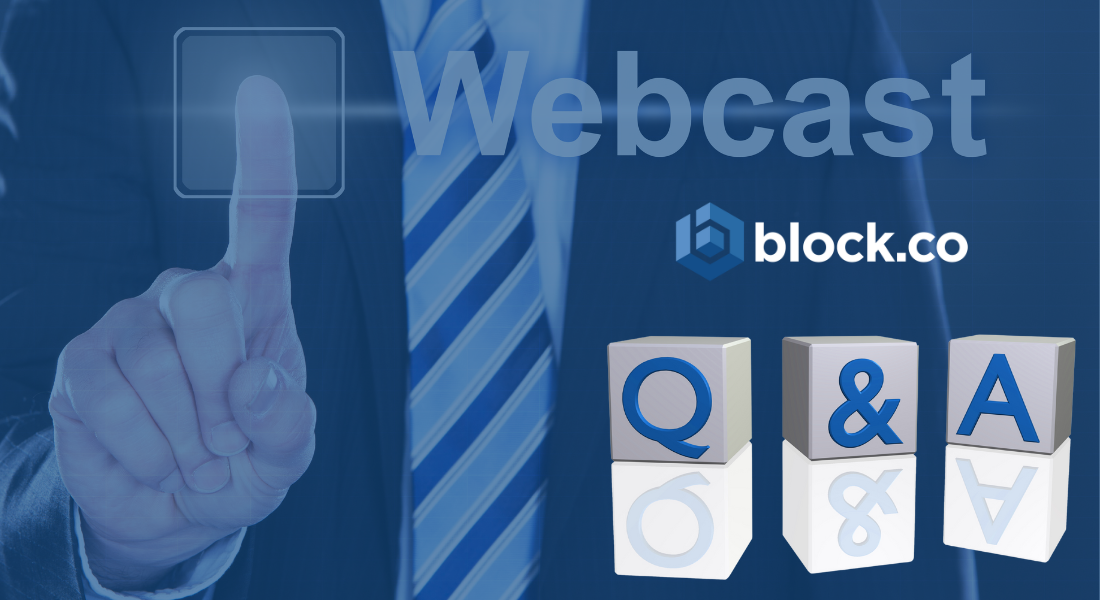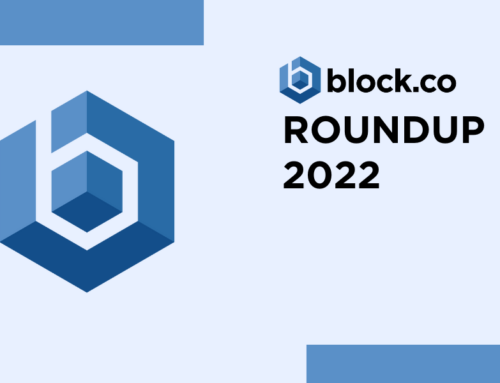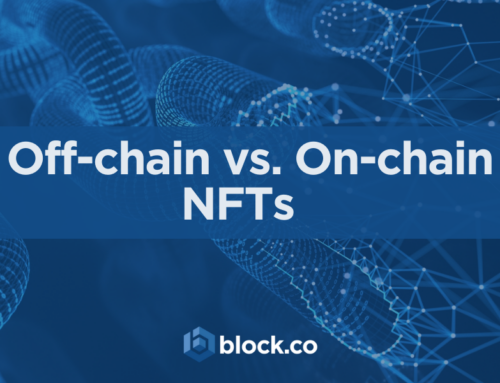Legal Webcast: Blockchain for the Legal Industry – Q&A

Block.co’s first webcast “Blockchain for the legal industry. How is the Coronavirus crisis making adoption more imminent?” was a huge success! We gathered the best experts in the field Yiannos Georgiades and Christiana Aristidou to share their experience in the industry and discuss with us the latest news! In its first webcast, Block.co gathered 411 participants from 47 different countries, for a 1-hour webcast where guests answered participants’ questions.
Below is a list of the questions that were made and were not answered due to time constraints. Please note that the below information is only for educational purposes and is in no way investment or financial advice!
Question 1: What do you make of the use of DLT instead of Blockchain. Are we looking at the Enterprise use of Public Ledgers or more of DLT such as R3 Corda and IBM HyperLedger?
Answer – Q1: Distributed Ledger Technology is an umbrella term used to describe technologies which store, distribute, and facilitate the exchange of value between users, either privately or publicly. Blockchain was the first fully functional Distributed Ledger Technology and the only one people knew about for close to a decade. This likely led people to the conclusion that it is, was, and would forever be, the only form of DLT, therefore making it acceptable to use the two interchangeably. Blockchain is a type of DLT, a subcategory of a broader definition. Private blockchains and DLT such as R3 Corda and IBM HyperLedger need to maintain a chain and thus need further monetary incentives to be sustained. The Enterprise use of public blockchains does not require any maintenance. Information anchored on public blockchains lives for free, forever, backed by the existing incentives of these networks like miner block rewards on the Bitcoin blockchain. The use of a DLT always comes down to decentralization and the specific use case. If decentralization is not needed, then a DLT such as R3 Corda and IBM HyperLedger could be chosen, trading off decentralization for speed in transactions and keeping data transparent only to permissioned participants.
Question 2: Can you reflect on progress in the US or North America?
Answer – Q2: The United States is rightfully considered the most advanced country in the world in terms of blockchain and cryptocurrency adoption, with many businesses accepting cryptocurrency for their day-to-day operations. This also defines why blockchain and cryptocurrency regulations are so deeply connected here. The complexity of U.S. laws lies in several governmental levels — federal and local (state) ones. While digital currency is recognized and legalized on a federal level, the laws may differ from state to state. There are several federal agencies that regulate blockchain-related businesses in the United States. While they sound different, the following three classifications are very similar to each other and, in short, allow several agencies to collaborate on regulatory and enforcement matters:
The U.S. Internal Revenue Service defines cryptocurrency as assets for taxation purposes
The Commodities Futures Trading Commission (CFTC) defines cryptocurrency as a commodity
The Securities and Exchange Commission distinguishes digital currency as a security
Interestingly, while the U.S. government has spoken on the extensive regulations of the cryptocurrency industry, it’s been fairly quiet on other blockchain-related business models. There are no clear regulations that are currently present in that department. However, SEC did release several statements over the last 12 months regarding the activities of fundraising through an ICO or token sale, deeming them as securities.
Federal Trade Commission (FTC) went further and created a Blockchain Working Group, whose primary goal is to crack down on illegal and fraudulent schemes arising in the marketplace from time to time. Additionally, the Group also focuses on three more goals:
building FTC staff expertise in cryptocurrency and blockchain technology
assisting internal and external communication on enforcement actions
providing a forum for discussing potential influences on FTC’s objectives and how to respond to them
The group has been staying pretty active and has brought several notable lawsuits over the years. In 2018, FTC had U.S. Federal Court to shut down a group of individuals involved in deceptive practices. In 2016, they also brought up a case against Butterfly Labs, for deceiving customers about the profitability and age of the mining machines. However, FTC does not only enforce but educates as well. For instance, they’re the ones hosting public forums on the blockchain, too.
To sum up, the U.S. government takes the same stance with the blockchain industry as it does with anything else: regulations first, business second.
More info: https://www.globallegalinsights.com/practice-areas/blockchain-laws-and-regulations/usa
Question 3: Will lawyers need to learn to program smart contracts?
Answer – Q3: Lawyers will either need to sharpen their skills further to be able to write code and program smart contracts, with languages like Solidity on Ethereum, or work closely with programmers in order to be able to combine both. In any case, these two industries will need to work closely, exchanging information, terminology, and mentality in the new digital e-governance model.
Question 4: Do you see widespread adoption of shareholder voting of directors via smart contracts anytime soon?
Answer – Q4: Actually yes! There are already solutions that are ideal for companies that offer a range of corporate secretarial and entity administration services. The benefits that the solution brings about are mainly simplicity of processes, reduction of costs, increased security and efficiency, as well as transaction transparency while remaining fully compliant with EU legislation. These solutions bring the concept of traditional equity to the Blockchain. The digital and streamlined processes allow for easy issuance of tokenized equity via an app. This equity can be traded peer-to-peer between investors easily. That same app that is used to manage this equity manages corporate housekeeping like shareholder meetings, board meetings, and full documentation (like share register). Corporate signatories and contract signing are supported as well. We believe that once the regulation is adjusted to recognize these systems, then widespread adoption will take place as the benefits outweigh the costs!
Question 5: Can you as lawyers not push as a professional body to change the regulations?
Answer – Q5: Yes, blockchain regulation is already in the works and is expected to be delivered in Q3 of 2020. As board members of the Cyprus Blockchain Association which was established in 2018 and is a regional stakeholder in drafting policies alongside corporates and the government, we represent the local community and its projects and we strive to provide any assistance when and if needed to the regulators.
Question 6: There are points where technology is valid within the law to implement such advances. However, the majority of possibilities will need to be validated by law before the lawyers are able to perform work with blockchain and smart contracts. Do you think the legislation will effectively change to accept these new formats of interaction between peers?
Answer – Q6: In short YES! But it will take time in order to be able to effectively change legislation to accept these new formats of interaction between peers. These are due to a few factors, from the knowledge required by legislators about the technology itself and how to convert the learnings into applications of the law and to the speed at which new applications are created from day-to-day. The industry is nascent and it is growing with geometric progress. It will be a real challenge for regulators to make these changes all together so it is very important that the new generation of legal professionals be aware of this new technology and the vast impact it will have in our lives and the laws we abide by in the near future.
Question 7: I actually did a module with UNIC where it was raised that agreements that had gone digital had almost fallen out of legal frameworks and they need to be added in. The technology is implementing agreements and contract law should apply?
Answer – Q7: That is exactly right, at this point we have essentially two frameworks that are concurrent. The one is the technological framework under development co-existing with the traditional framework and this implies a few challenges. The main challenge is how to transform existing regulation that was drafted decades ago with terminology and concepts that did not exist at that time.
Question 8: The same example Mr. Georgiades made about a landlord limiting access to a property to a tenant would be illegal in most of the regulations. Do you think there is space for these kinds of contracts in the near future? (min. 1:20)
Answer – Q8: Although it is very hard to predict the future, the development of nascent technologies such as the Internet of Things in combination with Blockchain and DLT could potentially make these kinds of contracts possible in the near future. If the jurisdiction would allow for such regulation then the key to the estate could be a digital key connected to a smart contract. The contract would be able to check if the tenant has honored his obligations to the landowner and provide access for example if the rent has been paid. If the rent is due, it could prevent the tenant from entering it. These technologies could go a step further and actually deduct the balance from the smart contract wallet of the tenant based on the days, hours, or even seconds he is staying at the estate. But as mentioned before, these are hypothetical examples and we have a long way to reach this, as the world is not ready for it yet.
We would like to thank everyone for attending our webcast and hope to interact with you in future webinars. If you would like to watch the webinar again, here is the link to our Youtube channel: https://www.youtube.com/watch?v=2bDqfgyiyqY
If your brand is ready to take the step into web 3.0 and NFT marketing, to optimize engagement with your audience in innovative ways, then click the button below to get your Free Trial, a limited number of Free NFTs, and a Free Consultation call from our team!
For more info, contact Block.co directly or email at enquiries@block.co.
Tel +357 70007828
Get the latest from Block.co, like and follow us on social media:







